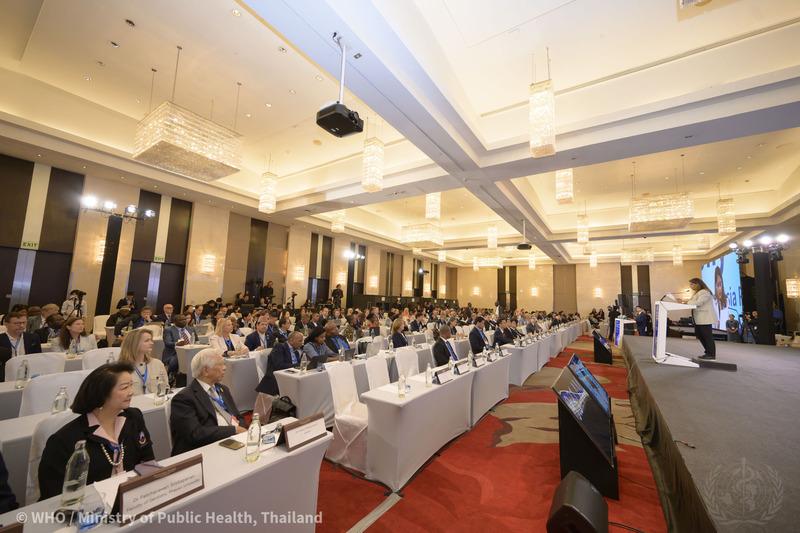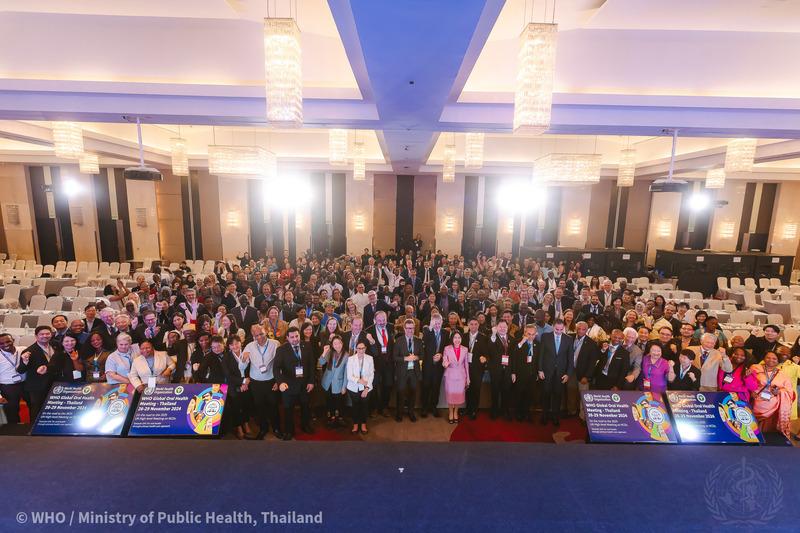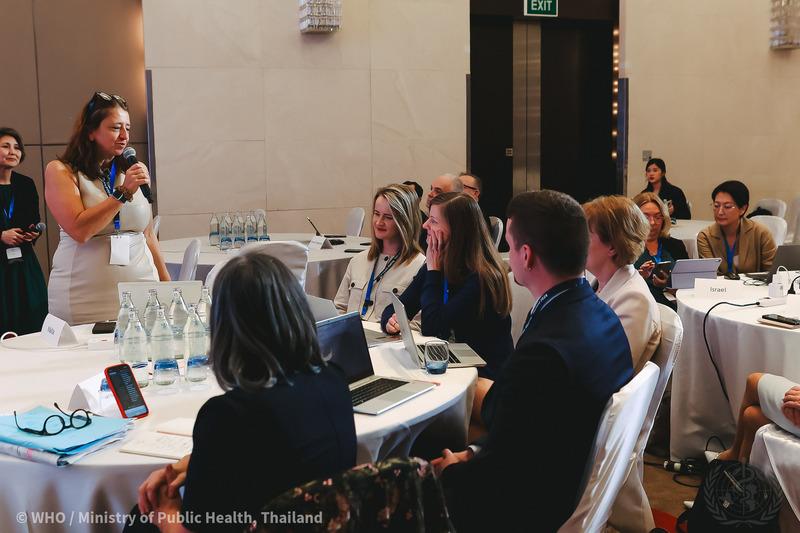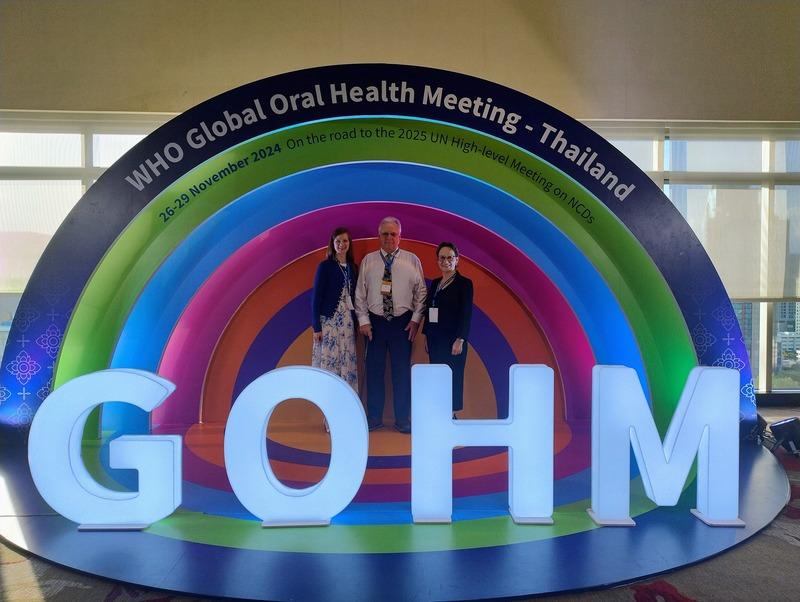RSU researcher represents Latvia at World Health Organisation Global Oral Health Meeting in Thailand
On 29 November, at the conclusion of the World Health Organisation (WHO) Global Oral Health Meeting (GOHM) in Bangkok, Thailand, the world focused on oral health issues, recognising that "there is no health without oral health". This was the central message of the Bangkok Declaration adopted at the event, designed to provide a rationale and support for Member States to achieve the goals of the WHO Global Oral Health Action Plan (GOHAP) 2023-2030. Endorsed by more than 100 Member States, the UN, representatives of funding agencies, non-governmental, chronic disease and community organisations, academia, philanthropists and foundations, the Bangkok Declaration highlighted the critical importance of oral health in achieving universal health coverage (UHC) and reducing global health inequalities. The meeting also contributed to the preparatory process leading to the 4th UN High-level Meeting of the UN General Assembly on the prevention and control of noncommunicable diseases (4th UNHLM on NCDs) in 2025.
Thanks to the funding of the FLPP project IEVA lzp-2022/1-0047 "Implementation of the Evidence-based Paediatric CAries Management Strategies in Latvian Clinical Practice - an Evidence Transfer Study", Latvia had the opportunity to be present at a historic moment. The essential dental care mentioned in the Bangkok Declaration includes the methods studied in the project and their implementation. The adoption of this declaration is expected to be one of the contributing factors to the achievement of the IEVA project objectives, which is why the presence of the RSU Principal Investigator Ilze Maldupa was essential.
'It was an unbelievable feeling of unity - leaders from all over the world, the most influential organisations, from patient and student representatives to UNICEF and the UN - all united in the recognition that there is no health without oral health.
As trivial as this statement may seem, it is an extremely significant step at the political level, as from 29 November 2024, oral health must be included in all health planning documents.'
Key results and commitments
The Bangkok Declaration sets ambitious targets to integrate oral health care into national primary health care systems by 2030. Key objectives and strategies to achieve them were also defined for Latvia, with the support and consultation of Member States from other European regions.
To ensure that oral health is recognised as a fundamental right rather than a privilege, essential, safe and evidence-based effective dental care must be integrated, including interventions that include the availability of fluoride toothpaste, silver diamine fluoride, atraumatic restorative treatments and dental sealants for early caries treatment and lifelong control of the disease.
Health promotion activities that prevent not only oral diseases but also other NCDs, such as cardiovascular diseases, diabetes and oncological diseases, and that have a significant impact on the health budget should be adopted. These include limiting sugar, tobacco and alcohol consumption, and providing essential and emergency care for all society.
Latvia's role in the global initiative
In line with the WHO GOHAP 2023-2030 targets, the Latvian Ministry of Health is already taking steps to integrate oral health into the broader health planning agenda.
National plans include introducing taxes to restrict sugar intake, improving access to fluoride for caries control, expanding health literacy programmes and campaigns, and addressing health disparities among rural and low-income populations.
Recognising the importance of early intervention, Latvia aims to include oral health education in school curricula and in higher education for all healthcare workers, thus promoting oral health literacy at all levels of society.
Call for action
The Bangkok Declaration emphasises "No health without oral health," and Latvia's participation in this global initiative demonstrates a commitment to reducing oral health equity gaps and promoting a healthier future for all Latvian citizens.
As we approach 2030, Latvian policymakers, health professionals, RSU, and society are called upon to work together to ensure that everyone - regardless of socio-economic status - has access to quality oral health care.
The improvement in oral health to date is mainly due to an increase in economic conditions and the availability of fluoride toothpaste. It is time for dental professionals to take the initiative in introducing evidence-based, effective methods of caries control that will allow all Latvians to live a life free from the pain of oral disease while the health care system provides immediate care for everyone in the event of emergency complications or injuries.
Related news
 Representatives from RSU attend international conference on human resources in healthcareConferences, workshops
Representatives from RSU attend international conference on human resources in healthcareConferences, workshops












